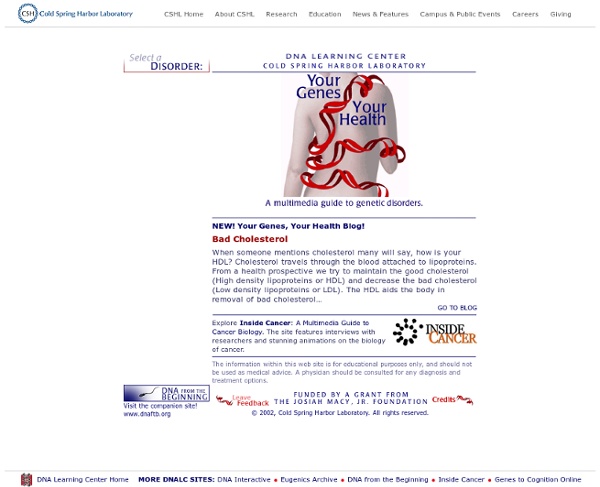Genetic Disorders

Welcome to Disabilities-R-Us! < Disabilities-R-Us
Genetic Disease Causes, Types, and Conditions Information on MedicineNet
What is a genetic disease? A genetic disease is any disease that is caused by an abnormality in an individual's genome. The abnormality can range from minuscule to major -- from a discrete mutation in a single base in the DNA of a single gene to a gross chromosome abnormality involving the addition or subtraction of an entire chromosome or set of chromosomes. Some genetic disorders are inherited from the parents, while other genetic diseases are caused by acquired changes or mutations in a preexisting gene or group of genes. Mutations occur either randomly or due to some environmental exposure. What are the different types of inheritance? There are a number of different types of genetic inheritance, including the following four modes: Medically Reviewed by a Doctor on 1/15/2014 Patient Comments Viewers share their comments Genetic Disease - Symptoms Question: What were the symptoms of a genetic disease in you or a relative?
Related:
Related:



